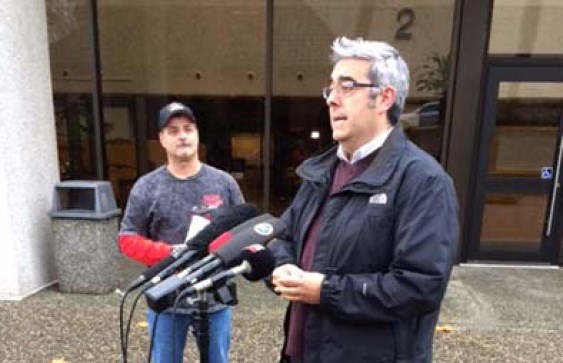The push to have Allan Schoenborn declared a high-risk accused — and prevent him from being allowed out on escorted leaves from the Forensic Psychiatric Institute in Coquitlam — will continue next spring.
In her decision released Wednesday morning, Madame Justice Martha Devlin found that provisions in Bill C-14, the federal legislation that came into force in July 2014, can and should apply retrospectively to Schoenborn as well as others in the system who have been declared not criminally responsible by reason of a mental disorder (NCRMD).
"I find that the language of the statute clearly establishes that the 'high-risk accused' provision has immediate application to all NCR accused in the system," Devlin wrote.
Contrary to the defence's position that the provision declares new consequences for past events, she added, it is in keeping with the NCRMD regime, which is "clearly preventative in nature," and the legislation is clearly worded to include all NCR accused currently in the system.
Schoenborn murdered his three children in their Merritt home in the spring of 2008 and has been at the Forensic Psychiatric Institute since he was declared NCR in early 2010.
He was approved for escorted leave after a lengthy BC Review Board hearing but, in September, Crown counsel filed an application to have Schoenborn declared a high-risk accused.
"It would make little sense for Parliament to create the 'high-risk accused' scheme and only have it apply to NCR accused who received NCRMD verdicts after the enactment, when there could be potentially dangerous NCR accused warranting such a designation within the system now," Devlin wrote. "Retrospective application is the only interpretation that makes sense."
Outside B.C. Supreme Court in New Westminster, Michael Clarke, the uncle of the three children Schoenborn murdered, said his sister Darcie Clarke, their mother, is happy and relieved with the result but that her well-being is still very much a day-by-day struggle.
"I'm feeling like somebody just stood off my chest," Clarke said. "For now, I'm happy until April, then I'll start to feel all stressed out again. But this is a great step for all Canadians."
Dave Teixeira, who speaks for the Clarke family, said the decision "clearly outlined that Bill C-14 is to address public safety, and that public safety is the paramount concern."
Justice Devlin's decision paves the way for an April 2016 hearing, at which lawyers will argue whether the law violates Schoenborn's Charter rights. If it's found that Bill C-14 does not violate his individual rights, a hearing in May will determine whether the high-risk accused designation should apply to him.
@spayneTC



